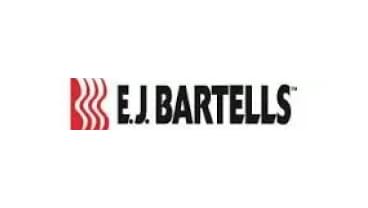The E.J. Bartells Company
Fact Checked | Written by: Matt Mauney | Last Update: 01/14/2025 | 3 Min Read
E.J. Bartells sold insulation and refractory products that contained asbestos, leading to many asbestos-related lawsuits. The company filed for bankruptcy protection in 2000 and established a $20 million trust fund to address present and future asbestos claims.
Fact Checked | Written by: Matt Mauney | Last Update: 01/14/2025 | 3 Min Read
Written by: Matt Mauney | Edited By Walter Pacheco | Last Update: January 14, 2025

"My primary support since being diagnosed with Mesothelioma, ...." see more
Mary L. - Mesothelioma Patient
"I found out about The Mesothelioma Center while researching ...." see more
Karen F. - Mesothelioma Patient
"I just want to take this time to thank Mesothelioma Center f...." see more
Richard D. - Mesothelioma Patient
"My brother was recently diagnosed with mesothelioma. I began...." see more
Cindy W. - Sister of a Mesothelioma Patient
"My father was recently diagnosed with mesothelioma. We, as a...." see more
Cindy R. - Daughter of a Mesothelioma Patient
-
Founded:1923
-
Years Operated:1923 - circa 2004
-
Headquarters:Renton, Washington
-
Business:Manufacturer of refractory and industrial products
-
Asbestos Trust:Yes
-
Bankruptcy Status:Filed in 2000 and reorganized in 2001.
History
Edwin J. Bartells founded The E.J. Bartells Company in 1923. His goal was to provide “the most complete line of insulation/refractory products and services available on the market.” Until the late 1970s, the company manufactured products using asbestos, a toxic mineral that the refractory business relied on because it was resistant to fire and heat.
Throughout its history, the company conducted business with notable names including Boeing, Xerox, Intel, Apollo Sheet Metal, J.H. Kelly and others. Many of these companies were also known to manufacture asbestos-containing products.
The company was acquired and merged with Distribution International in 2015. In October 2021, Distribution International was acquired by TopBuild.
The E.J. Bartells Company stopped doing business in the early 2000s and officially became an inactive corporation in 2004. A private company revamped the company as E.J. Bartells in 2001.
E.J. Bartells sold refractory and mechanical insulation, HVAC and air handling units and other products. However, today they are produced in accordance with current asbestos regulations.

Gain access to trust funds, grants and other forms of compensation for you or your loved ones.
Get Help NowLitigation & Specific Lawsuits
The original E.J. Bartells Corporation faced many asbestos-related lawsuits because of its use of asbestos. These lawsuits came from former employees and those who used the company’s products.
One prominent case was brought by the wife of a former machinist and electrician. She filed a wrongful death lawsuit against multiple companies that she said exposed her husband to asbestos. One of these companies was The E.J. Bartells Company. A jury found the company partially liable for the man’s death (from pleural mesothelioma) and awarded the family a total of $3 million in punitive damages, $1.5 million in noneconomic damages and $307,000 in compensatory damages.
Another lawsuit was filed by the family of a former employee who died from asbestosis. They sought death benefits, disability benefits and mesothelioma compensation for funeral expenses. The family was awarded $750 monthly payments to be paid over the course of 20 years in a settlement agreement with some of the third-party defendants.
Inundated with thousands of asbestos claims, The E.J. Bartells Company filed for Chapter 11 bankruptcy protection in 2000. As part of its reorganization efforts, the original company established an asbestos trust fund to address any ongoing and future asbestos claims. The reorganized E.J. Bartells has not been involved with any asbestos lawsuits.
Industries & Occupations
Employees from many occupations and industries used asbestos products from The E.J. Bartells Company. Insulators, plumbers, pipe workers, electricians and construction workers all utilized products the company manufactured. These workers then faced elevated risks for respiratory diseases such as asbestosis and cancers like lung cancer and mesothelioma.
Because of the risk of occupational illness, former employees of The E.J. Bartells Corporation should consider regular screenings for potential asbestos-related diseases. Employees of the currently operating E.J. Bartells (or workers from other industries who use their products) do not face the same exposure risks.
Products
The E.J. Bartells Company made a number of products that contained asbestos. These products included adhesives, tapes, sealants, insulation, cement, duct connectors, pipe coverings and insulation pads and tapes.
Recommended Reading


